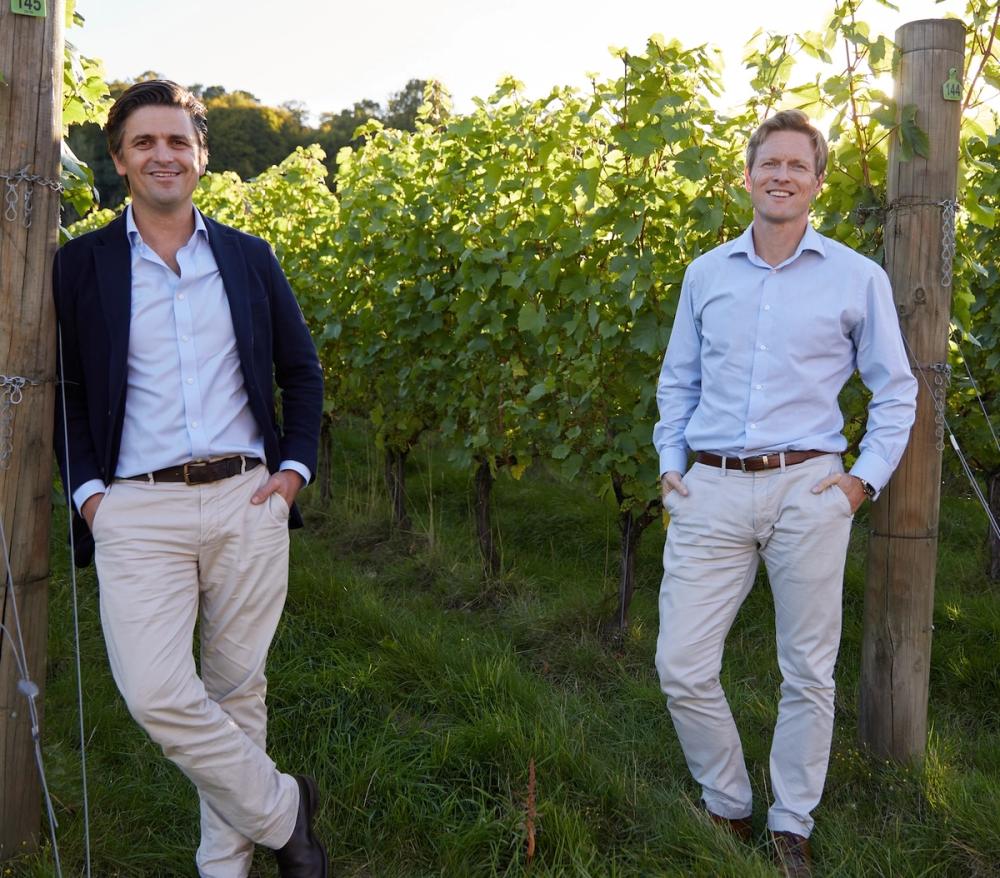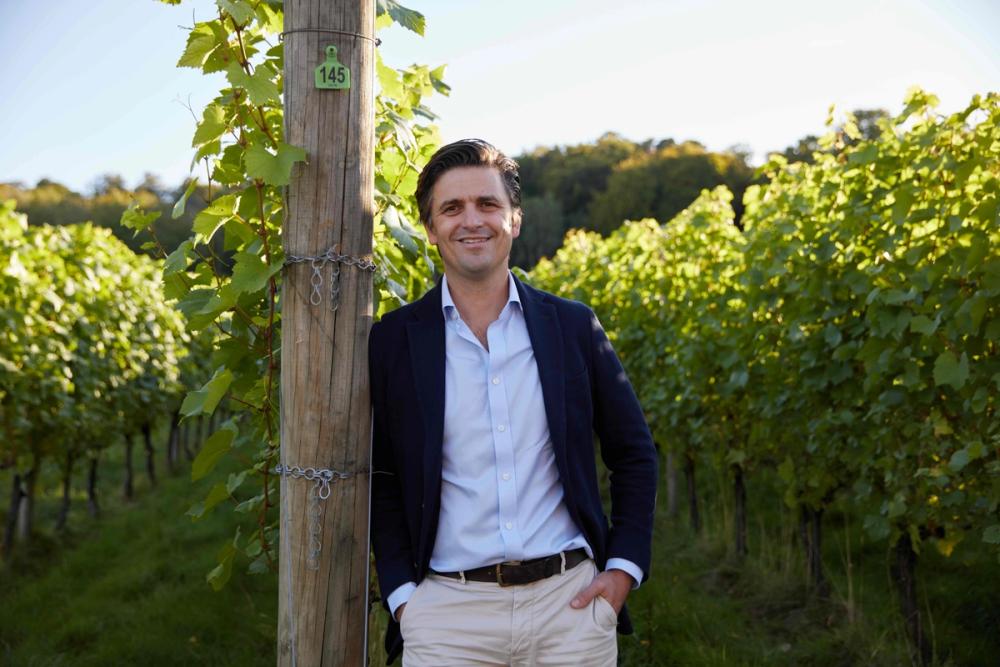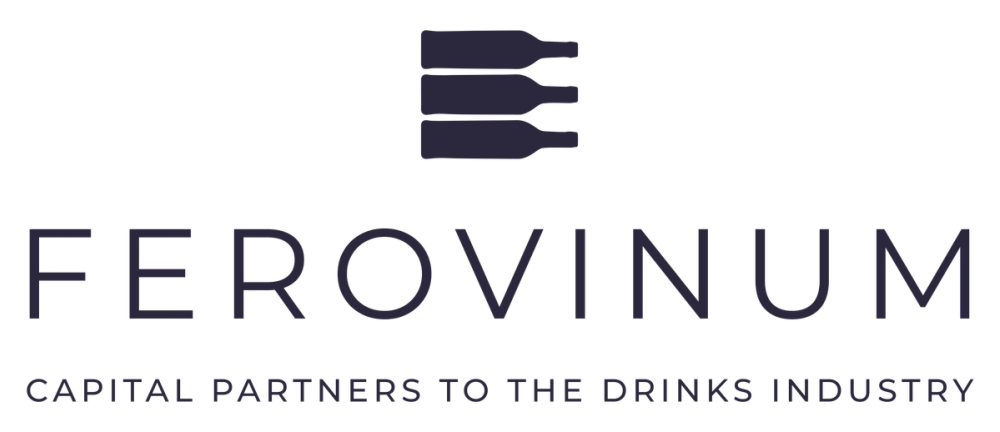You know you are dealing with a completely different type of drinks business just by walking into the Ferovinum office. For a start there is a meticulously built lego version of the Millennium Falcon sitting on the desk in reception. Which should tell you something.
Venture into the main office itself, situated just off London’s throbbing Carnaby Street, and you are greeted by a room full of people all busy working away on a myriad of computer screens that makes it look more like Nasa’s control centre. Like any modern business Ferovinum has a flexible working culture but things are happening so fast here you need – and want – to be in the office to keep up and be part of it.
If anything Ferovinum has a problem of keeping staff out of the office and not spending hours into the night coding away and looking to crack the next software solution.
For this is a business that is built on and powered by technology with the majority of its 50 plus staff hand picked from plum software and top management and operational roles, from the likes of KPMG, eBay, PayPal and others.
Despite officially launching before Covid it has only in the last few months started to make its first serious hires in what might be seen as traditional drinks industry roles - with Erin Smith joining as head of marketing from Slurp and Freixenet Copestick and Helen Barugh as head of distribution, where she previously the channel director of grocery for Mangrove Global – and a new head of wine set to join in the autumn.
All of which has been a very deliberate strategy based on building the technology and infrastructure – or what it calls its “platform” – from which Ferovinum is now able to offer its raft of bespoke supply chain and funding services to the drinks industry. All the way from the vineyard, or distillery, right through to the retail or restaurant floor. Linking producers with buyers, via all the logistic providers, bulk brokers, importers, distributors and merchants in between.
Thinking and acting differently

Mitch Fowler, left, and Dan Gibney believe Ferovinum has the capital investment resources and software expertise to help transform the drinks industry's supply chain in the same way they have been able to work in other business sectors in their previous high level finance careers
Ferovinum feels like a different type of drinks business, because it is. It only exists thanks to the vision of its co-founders, chief executive Mitch Fowler and chief financial officer, Daniel Gibney, who were willing to give up very well paid roles in commodity trading and corporate finance respectively and set up a company that has not existed before in the drinks industry.
The fact they both got to know each other across a poker table might account for why they were willing to go into such a high risk and unpredictable sector as the drinks industry.
Fowler’s experience in finance and commodities trading comes from years of work helping to set up “physical supply chain businesses” across a number of different commodity sectors including energy, metals, agriculture, coffee, cocoa and grains.
“Every market had lots of differences which was fascinating to see, but the most interesting part was the common core competencies in making a supply chain work well and what was the same between those markets,” says Fowler and being able to take “what you have learnt in oil and then bringing that core competency into say a cocoa supply chain”.
The key starting point in building those supply chains, he says, was to “make the value chain capital efficient by carrying inventory for them” and that would then “unlock” other efficiencies for a company. Even when working with a business of the scale of BP it would still be possible to“unlock” supply chain benefits, he says.
Gibney’s prior finance career had been more geared to the debt management side of corporatefinance and in particular “looking at companies working capital cycles” and “pinch points” and helping to “restructure” businesses, even governments and their lenders, when they get into “financial distress”.
That also brought him into contact with some wine importers where he was able to understand the issues they have around managing “working capital cycles” and how their growth is being held back by low net profit margins and the complexities they have around stock holding, out of stocks and service levels up and down the trade.
Separately, Fowler had long held a fascination in the machinations of the English wine sector, going back as far as 2012, before he even thought of it as a professional opportunity.“Because I grew up in the Hunter Valley in Australia, I have always been interested in wine,” he explains.
Opportunity knocks

Mitch Fowler says as soon as he realised the scale of the problems within the global drinks industry supply chain it was too good an opportunity not to try and use his finance, capital and supply chain expertise to try and offer new breakthrough solutions
Thanks to their friendship forged over that poker table, the two realised they were both separately looking at how they could “get money into the wine industry” and were ideally placed to potentially do something quite game-changing with it.
It was also the right time in their respective careers to make the jump out of pretty settled positions in major financial businesses and go and do something for themselves.
“You get to know somebody pretty well over a poker table,” says Fowler.
Gibney agrees: “It is a game of skill, risk and judgement and you do definitely get a good read of someone playing poker. So the more we thought about it the more we realised what an opportunity this was. You really don’t see these things very often.”
That said, Fowler admits when he made “the jump” he was at “the peak of his career” and it wason the back of a multibillion pound supply chain deal for a private equity client he had just completed.
“So it felt a bit crazy, if I am really honest, to take on something so speculative. But the size of the market and the extremity of the pain, both in terms of access to capital and the supply chain challenges within wine, in particular, it just felt too enticing not to do it,” he says.
“When you spend your career learning how to do something quite specific and then you see a really big problem that is causing a massive industry a huge amount of pain and the two are perfectly suited to each other, then you can’t not have a crack at it,” adds Fowler.
That “something” has resulted in a business that is focused on creating new automated supply chain solutions to transform the way drinks companies do business with each other. But crucially backed up by access to capital support that would enable it to fund drinks companies to maximise how they use its new supply chain platform services. At the same time freeing up much needed resources to focus on the margin and profit driving parts of their businesses so often held back by the costs of their operational and administration needs.
The overall Ferovinum “platform” has now successfully traded over £350m worth of wines and spirits through it, the majority of which has come in the last 12 to 18 months thanks to how fast it is now growing.
Stealth mode

It has put Ferovinum in a position where Fowler and Gibney have been able to go out to the finance market and build up a $550m investment fund – announced earlier last month thanks to an “asset-backed securitisation” deal with Pollen Street Capital and a leading investment bank.
But it is a far cry from when they first started out in what Fowler calls “stealth mode” in 2018 using their own money to investigate and analyse how the drinks supply chain works, relying on paper written contracts for its first trades.
It was during 2020 that they raised their first private and equity investors and were able to start providing “capital relief” and funding for drinks brand owners, producers and then distributors.
The first distributors to work with Ferovinum were attracted by the ability to use its funding to “optimise their procurement” and get better pricing by buying wine once a year, rather than negotiating multiple times a year, and “being able to pay suppliers up front”.
But they knew if they were to scale the business they needed to make a “significant investment in technology” which is where the Ferovinum of today comes from.
It was also through talking to their initial distributor and branded partners that they started to realise just how much value they could bring to the sector if they could bring a cutting edge tech solution to what Fowler describes as the “diabolically fragmented and difficult” drinks supply chain – particularly when compared to the commodity sectors they had been used to working in like oil, coffee and metal.
That, in turn, gave “us the confidence to go and raise money” so that they could invest in the tech-driven supply chain platform it has gone on to build, says Fowler.
“The degree to which it has been helpful and the extent of the problems were much bigger than we realised when we first set out to do it,” he adds. “But the marginal gains we have been able to deliver for people, even from the very early days, which have allowed them to become more profitable has been super exciting.”
Listening, learning and delivering
That process of listening to its trade customers, and better understanding their difficulties and then adapting their offer and services to provide solutions to those challenges is a vital on-going process, says Gibney. “It also gives us new ideas of what else we can do.”
“That has been the most important bit,” adds Fowler. “Before we spent any coding time building a product we just got in with our clients and learnt as much as we could about how this industry actually works before we started. Some things are different and some things are the same as other markets and you have to go through the pain with them to get to see where the answers are.”
He also believes being an industry outsider has been their biggest advantage and has allowed them to do things that are different to how they have been done before.
“You have no choice. As an industry outsider you have to have your ears open and you’ve got to soak up as much information as you can.”
Which brings with it its own challenges, stresses Fowler, particularly in such a competitive industry as the UK where the longest surviving and arguably most successful companies have got used to doing things in a certain way.
Now there is a new tech and finance start-up that comes along and says “I’ve got a better way of doing things that is going to give you more control over your supply chain, make you more profitable and make a lot of your capital issues go away,” says Fowler.“It takes a lot of trust and you have got to earn that trust, client by client, deal by deal, every single day.”
End to end support

Dan Gibney says the Ferovinum team is constantly talking to and listening to drinks companies to fully understand the real business needs that they find the hardest to crack - and then looking at the most effective and dynamic way of not just fixing them but finding new ways to work
The “platform” that Ferovinum has built is a “vehicle to carry your inventories on, all the way down the drinks industry value chain from end to end,” explains Fowler. Which provides a number of potential benefits:
- Funding those inventories right down the supply chain.
- Using the scale of all the other 75 plus companies currently using the platform to run, buy and sell their inventories on, in order to get products moving far more efficiently and effectively down the supply chain and across the value chain.
- To then accrue any benefits back to the group, attract more customers, and bring in higher revenues for businesses to re-invest in their companies.
To do that it initially built “workflow management around procurement” and “inventory management” and spent a couple of years “getting those right”. It then, in March 2024, launched sales modules that would allow businesses to sell products anywhere in the world through the platform, explains Fowler.
“That has been incredible in terms of uptake in the industry and the value that it adds for large national accounts and distributors and suppliers that are selling into them and vice versa,” he adds.
The sales module on the platform is where it is currently investing a great deal of its resources as it believes that is where it can add “so much incremental value for both sides of the market”.
There may be separate software solutions that allow you to do aspects of this – like CRM or ERP systems – but nothing that brings it all together with funding optimisation under one platform, claims Fowler. “We have tried to create something that is purpose built and end-to-end.”
In practical terms it has meant linking its systems to all the logistics providers at one end of the supply chain, through to all the big buyers at the other end and bringing their own enterprise procurement systems on board.
It is now heavily investing in the “connectivity between distributors, suppliers and big national accounts” and all the small individual businesses in the on-trade and across independent retailing and building the “self service tools” and ways to integrate with whatever tools those small businesses are using.
Because it is already integrated with the big bonded warehousing companies, like London City Bond, it can connect its platform to the technology they have running their warehousing distribution and bring the “two sides together and basically automate that sales cycle”.
“We also bundle in financial products so that we fund all the way through to when you get paid by the restaurant or national account and we insure all the credit risk across all those sales channels,” he adds, which is potentially “very valuable at a time when there is so much risk supplying product into the on and off-trade at this time”.
Ferovinum will “insure 90% of the credit risk it takes selling to those businesses” thanks to the scale of its platform and the level of cover it can get from the big credit risk insurance providers. In turn that should take away the concern companies rightly have when supplying say to a 500-strong London restaurant chain, says Fowler.
Gibney also stresses that because it has such granular “visibility” of its own data it means “we really understand our clients and can take a very good view over where they are selling and for how much” and manage that risk very carefully. “That really helps us.”
So by using the Ferovinum platform you can take advantage of “supply chain automation, order management, risk management and funding,” says Fowler. “It’s much simpler than it sounds.”
Making the industry match fit

Ferovinum wants to be able to provide new high level supply chain solutions that makes the drinks industry "match fit" compared to the other categories within food and beverage it is competing with
He says the wine and drinks industry also has to realise it is competing against supply chain expertise across the rest of food, beverage and retailing that is state of the art. Systems that, for example, can tell the likes of Unilever or Coca-Cola how much false stock they have per store and how much each one is costing the company.
“That’s what as an industry we are competing with. The rest of food and beverage is so much more consolidated and has so many tools as a result to compete. So we are making that scaled investment to make sure we have the same level of match fitness,” says Fowler.
Not that Ferovinum is trying to create new solutions for all parts of the supply chain puzzle.
“The quality of data we have means we can plug into some of the other tools that are available much more efficiently and effectively and leverage those tools to the maximum degree. We want to focus our energy and resources on the parts that haven’t been solved and in our industry there’s quite a big opportunity to do that,” he adds.
A platform that can now be broken down into three key areas:
- Automation and workflow management around procurement.
- To be able to run inventory management.
- Have sales modules so that people could sell anywhere in the world through the platform.
All of which you could describe as the current car model that Ferovinum is driving, but there are a number of upgrades waiting in the wings to be added in the coming months that will enable it to drive the car much faster forward and take it in different directions.
“We are only just getting started. There is so much more that we can build and we have got so many more exciting things on the road map in terms of automation and things that will massively move the needle,” adds Fowler.
“On the agency, distributor, reseller side we really want to find the most innovative businesses and supercharge them and there are still lots of good case studies yet to be written there. We are on the hunt for innovators in that area in the UK.”
Removing operational obstacles

Ferovinum is giving the opportunity to its drinks clients to host parties and events by using its Carnaby Street location in London that has its own private rooftop terrace overlooking the sights of London
One major obstacle that Ferovinum believes it can provide a solution for is the number of people that wine businesses have running the operational side of the company.
As Fowler explains: “What is really going to help build value for drinks businesses is either being amazing at selling the product if they are a distributor, or having a great brand if they are a supplier. But at the moment they are having to focus all their resources in terms of people on the things that don’t actually add a lot of value for them. Like managing the supply chain, or managing payment terms hand to mouth.”
“But if you look at the head count and resources in any of those companies [distributors and importers] it is focused on just administrative and logistical stuff and trying to solve all of these problems. The selling is almost an after thought. It means to their customers, who are ultimately the suppliers who trust them to sell their product in market, they are not able to direct resources to what adds the most value.”
He adds: “We want to give people tools so they can re-focus their resources on the things that actually add value – like selling product and building great partnerships with suppliers, or building a great brand and finding great partners in different channels. That’s the thing that is going to move the needle for them.”
Gibney says Ferovinum is focused on freeing up distributor and importer resources so that they repurpose more people into selling.
“It is about making sure everyone is paid well and the industry is as sustainable as it can be,” adds Fowler. “The leverage it gives to your best people is massive.”
“So in terms of the significance of the mission it feels more important than ever to get the whole industry as match fit as we possibly can so that we are ready to face these challenges.”
It leaves Fowler, Gibney and the Ferovinum team in an exciting place.
“It does not feel like work, when you are just building and creating – it’s brilliant and you get to see the energy of people bouncing into work,” adds Gibney.
“I still jump out of bed in the morning,” adds Fowler. “They say time flies when you are having fun and it feels like we are just five minutes in. For the more we look, the more we learn and the more people we speak to, and the more people we connect with in the market, the more excited we get because we see the opportunity there is to help and the impact it is having on our clients.”
* You can find out more about how Ferovinum works on its website here.
* Ferovinum is a commercial partner to The Buyer.






























